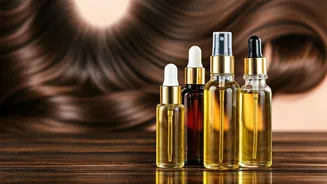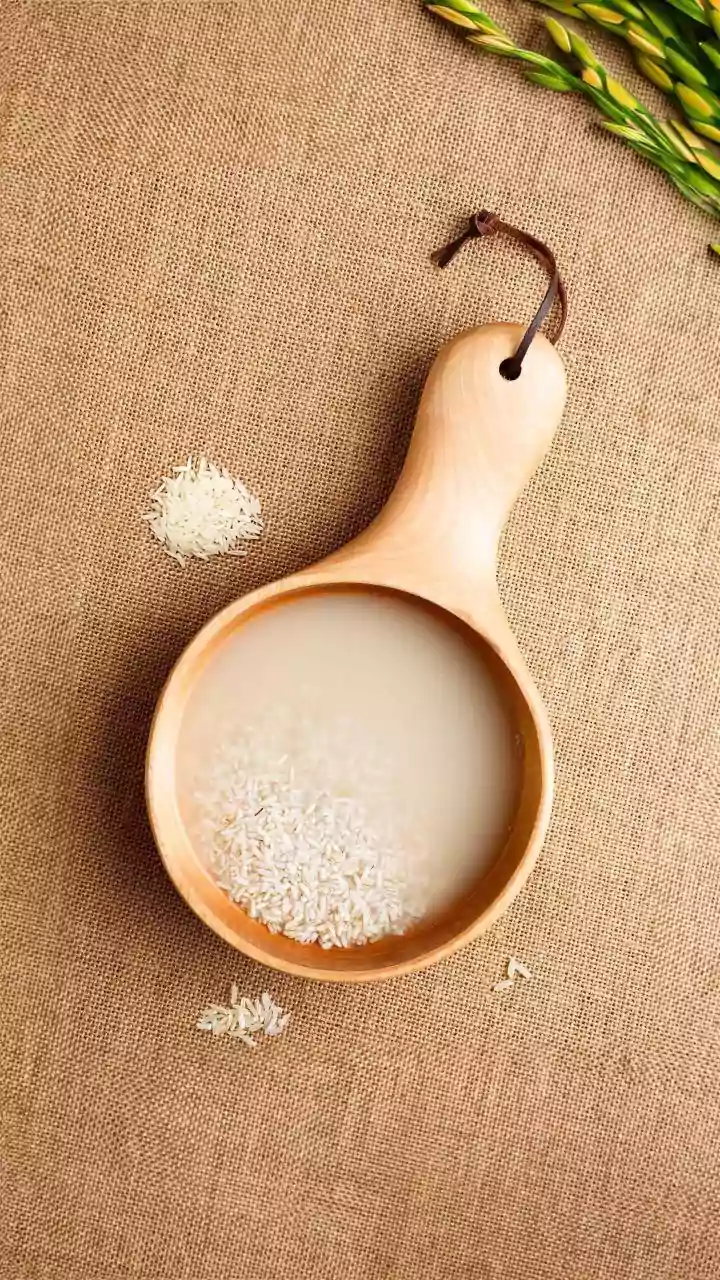Understanding Hair Oils
Hair oils have long been a staple in hair care for promoting growth and improving hair health. They work by providing essential nutrients, moisturizing
the scalp, and reducing breakage. Regular use of hair oils can boost blood circulation in the scalp, thus encouraging hair growth and improving the overall texture. These oils can also protect hair from environmental damage, such as sun and pollution, and add shine. They can also aid in managing common issues such as dryness, frizz, and split ends, leading to improved hair manageability and appearance. The key to selecting the best hair oil is to consider your hair type and specific needs, from hydration to stimulating growth. Incorporating the right oils into your routine can significantly enhance your hair's health and appearance.
Coconut Oil's Power
Coconut oil is one of the most celebrated natural hair oils. It is prized for its ability to penetrate the hair shaft effectively and provide deep conditioning. Rich in fatty acids, coconut oil helps reduce protein loss, a key factor in maintaining hair strength and preventing breakage. When used, it creates a protective barrier around the hair strands, shielding them from environmental damage and moisture loss. Its moisturizing properties can also combat dryness and enhance the overall luster and softness of the hair. Coconut oil is also believed to have antifungal and antibacterial properties, which can contribute to a healthier scalp, which is vital for promoting hair growth. It's suitable for various hair types, but the optimal use depends on the hair's specific needs. Regularly applying coconut oil can significantly improve hair health and appearance.
Argan Oil's Magic
Argan oil, often called 'liquid gold,' is renowned for its lightweight texture and superior moisturizing abilities. It is rich in vitamin E, antioxidants, and essential fatty acids that nurture and protect hair from damage. Argan oil's non-greasy formula makes it suitable for all hair types, including fine and oily hair. It effectively hydrates and softens hair while reducing frizz and enhancing shine. It can also help repair damaged hair by penetrating the hair shaft to restore moisture and elasticity. Furthermore, argan oil can protect hair from the heat of styling tools and environmental factors, improving overall hair health and manageability. Regular use of argan oil can result in smoother, more manageable, and healthier-looking hair.
Castor Oil for Growth
Castor oil is widely recognized for its potential to stimulate hair growth. It's rich in ricinoleic acid, which is believed to improve blood circulation to the scalp, thereby promoting hair growth. Castor oil also contains essential fatty acids that provide deep conditioning and hydration to the hair. Its thick consistency can create a protective barrier around the hair shaft, helping to retain moisture and reduce breakage. Castor oil is particularly beneficial for those looking to enhance hair thickness and growth, and it can also help address scalp conditions such as dryness. Regular use, when applied correctly, can lead to thicker, longer, and healthier hair. It is recommended to use castor oil in moderation, especially when starting, as its density may make it difficult to remove.
Jojoba Oil's Benefits
Jojoba oil is a highly effective oil that mimics the natural sebum of the scalp. This similarity allows it to easily penetrate the hair shaft, providing deep hydration and conditioning from within. Jojoba oil is rich in vitamins and minerals that nourish and strengthen hair follicles. It also helps regulate sebum production, which can address both dry and oily scalp issues. This oil has excellent non-greasy properties, making it suitable for all hair types. It can also help unclog hair follicles by dissolving sebum buildup, which promotes healthy hair growth. Using jojoba oil regularly results in improved hair texture, enhanced shine, and reduced breakage. It’s a versatile choice for maintaining overall hair health and vibrancy.
Almond Oil's Nourishment
Almond oil is rich in vitamins E and B, as well as proteins and essential fatty acids, making it an excellent choice for hair nourishment. It's known for its ability to strengthen hair strands, reduce breakage, and promote overall hair health. Almond oil’s lightweight formula makes it easy to apply and absorb, providing deep hydration without weighing the hair down. It helps seal in moisture, which enhances hair’s natural shine and softness. Regular use of almond oil can also help protect hair from sun damage and environmental stressors, improving hair’s manageability and appearance. It's a great option for those looking to add shine, reduce frizz, and improve their hair’s overall health and manageability, suitable for all hair types.
Olive Oil's Conditioning
Olive oil is a time-tested hair care remedy celebrated for its moisturizing and conditioning properties. Rich in antioxidants and essential fatty acids, olive oil helps protect hair from damage, boosts shine, and improves elasticity. Its ability to penetrate the hair shaft provides deep hydration, reducing dryness and preventing split ends. Olive oil is particularly beneficial for dry, damaged hair, restoring its natural softness and luster. Its nourishing properties also contribute to a healthier scalp and promote overall hair health. Regular use of olive oil can significantly improve hair’s manageability, reduce frizz, and leave hair looking revitalized and vibrant. It can also help protect hair from heat styling.
Tea Tree Oil's Health
Tea tree oil is appreciated for its antibacterial and antifungal properties, making it an excellent choice for promoting a healthy scalp environment. It can help unclog hair follicles and reduce dandruff and other scalp conditions, such as inflammation. Tea tree oil is also known to stimulate hair growth by enhancing blood flow to the scalp. The properties of tea tree oil can reduce scalp itchiness and irritation, providing relief and comfort. Tea tree oil is typically used in small amounts, as it can be potent. It can be mixed with a carrier oil like coconut or jojoba to avoid irritation. Incorporating tea tree oil into your hair care routine can lead to a healthier scalp, stronger hair, and reduced hair fall.
Rosemary Oil for Growth
Rosemary oil is a standout for stimulating hair growth, thanks to its ability to enhance blood circulation to the scalp. This improved circulation ensures the hair follicles receive more nutrients, stimulating growth and improving hair density. Regular use of rosemary oil can also help slow down hair loss and potentially reverse premature greying. The oil possesses anti-inflammatory and antioxidant properties that boost scalp health, reducing irritation and supporting overall hair vitality. Rosemary oil also has antimicrobial effects, contributing to a healthier scalp environment and preventing issues such as dandruff. It’s often recommended to dilute rosemary oil with a carrier oil before application to avoid irritation and enhance absorption. Its regular use can result in thicker, stronger, and more vibrant hair.
Essential Oil Blends
Creating custom hair oil blends allows for a tailored hair care routine by mixing different essential oils to address various hair concerns. You can combine multiple oils to target specific issues. This involves selecting oils with properties that complement each other, such as using rosemary oil for growth and argan oil for shine. The base of the oil blend typically includes a carrier oil, such as coconut, almond, or jojoba, to dilute the essential oils and enhance their absorption. Essential oil blends offer several benefits, including the ability to enhance hair strength, moisturization, and scalp health, which can improve overall hair appearance. Always conduct a patch test before using a new blend to check for any allergic reactions.



















